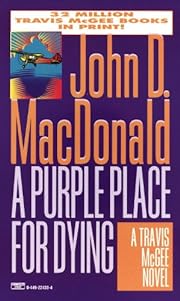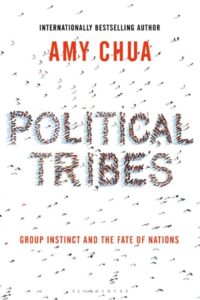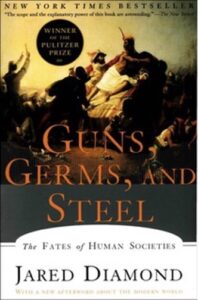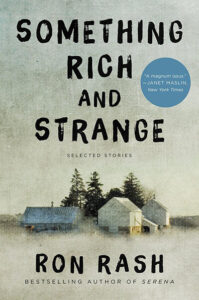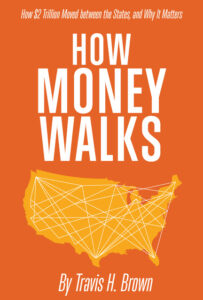1. Night at the Fiestas: Stories
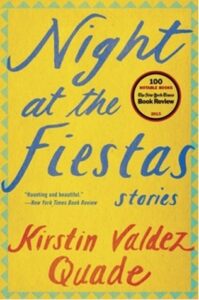
By Kristin Valdez Quade
304 pages
Originally published March 16, 2015
I don’t remember how this got onto my to-read list. I half-liked the title – a collection of possibly good, possibly literary short stories from south of the border. But titles, as we know, can be misleading. It could be a compilation of socially astute, Oprah-worthy, cliché-ridden accounts of racism and oppression.
It happened that – and, again, I don’t know why – it had been downloaded onto one of the book apps on my iPhone and I was embarking on an hour’s drive. So I began listening to it. And now, having read (listened to) it and thought about it for a week, I feel comfortable recommending it.
What I Like About It
Kristin Valdez Quade is indeed a literary writer, but in the school of simple sentences and limited flourishes that I prefer, especially when the stories are meant to be experienced (like The Sun Also Rises), not plumbed and researched and then deciphered (like Finnegan’s Wake). So, I like Quade’s style of writing. I also like the amount of detail in her stories that adds depth and dimension to the cultural background in which the stories come alive. And finally, I think she does a very good job with dialogue, which is not easy.
What I Don’t Like (So Much)
There is a minor current of political correctness that runs through the collection, in terms of who the heroes and villains look like, speak like, and act like. It’s there, and I wish it wasn’t. Because had Quade resisted this superficial commercial temptation, the book would have not only received high marks from me in terms of literary style and horizontality, but better grades on verticality as well.
Critical Reception
* “[A] sparkling debut collection… features dreamers and schemers whose lives pulsate with wild hopes, hard luck, stunning secrets, and saving grace.” (Elle)
* “Quade demonstrates her command of writing about complex issues of ethnicity and success head-on.” (San Francisco Chronicle)
* “ Fresh, funny…. A gifted storyteller with an eye for quirky, compelling detail.” (Dallas Morning News)
2. Can This Death Row Inmate Bring Down the Death Penalty Itself?

Death row inmate Richard Glossip in 2014, one year before he was scheduled to die.
A longtime “passion” of mine is the incarceration of people falsely convicted of crime. The idea itself is scary. But what’s really frightening is that I’ve learned from 20 years of involvement in this issue that proving one’s innocence is not, as one would think, a get-out-of-jail pass. On the contrary, the way the system works in most judicial jurisdictions in the US is that, after it’s been proven (often by DNA evidence plus admissions by the actual culprit) that some poor bastard has been incarcerated for 20 years, the DAs do everything they can to keep him in jail (or on death row) because they don’t want to tarnish their prosecution percentages.
For someone not familiar with the facts, this may seem unbelievable. Here’s a typical example from The Free Press that should upset you.
3. What a World: A Grieving Father Recounts His Son’s Dying Moments

Ken Kesey
An important feature of American prose style for the last 100 years is restraint. Restraint in action, restraint in diction, and, especially when describing harrowing experiences, restraint in expressing emotion.
“One icy morning in January of 1984,” Sean Usher writes in the Feb. 3 edition of Letters of Note, “as the University of Oregon’s wrestling team headed on a bus to their next tournament in Pullman, WA, the driver lost control of the vehicle on a mountain road and it tumbled through the guardrail and over a 300-foot cliff. Tragically, not all survived.
“One boy, Lorenzo West, was killed on impact; another, 20-year-old Jed Kesey, was left brain dead. He passed away within days.”
The boy was buried at his family’s farm. A few days later, his father, One Flew Over the Cuckoo’s Nest author Ken Kesey, wrote to five of his closest friends. Here is the power of restraining emotion.
4. How Much Does It Cost to Retire in the 20 Happiest Cities in the World?
We (The Agora Companies) publish all sorts of things about living and retiring abroad, including International Living, which is the largest circulation magazine of its kind. International Living often covers cost-of-living stories about beachside and or mountain areas as well as tropical paradises and low-cost retirement Edens. But I never saw an essay on this topic. Click here.


